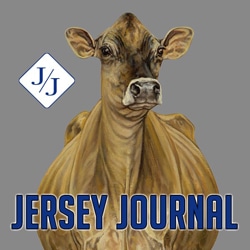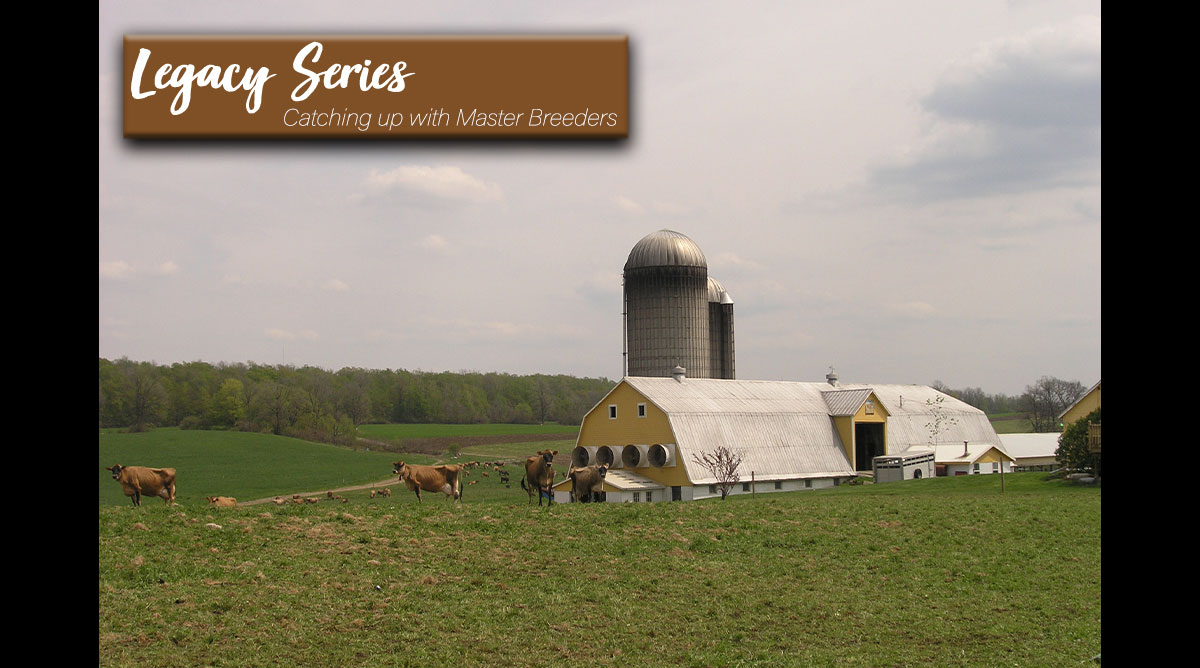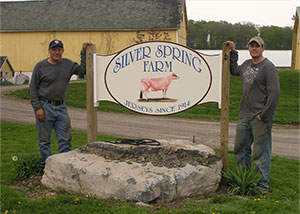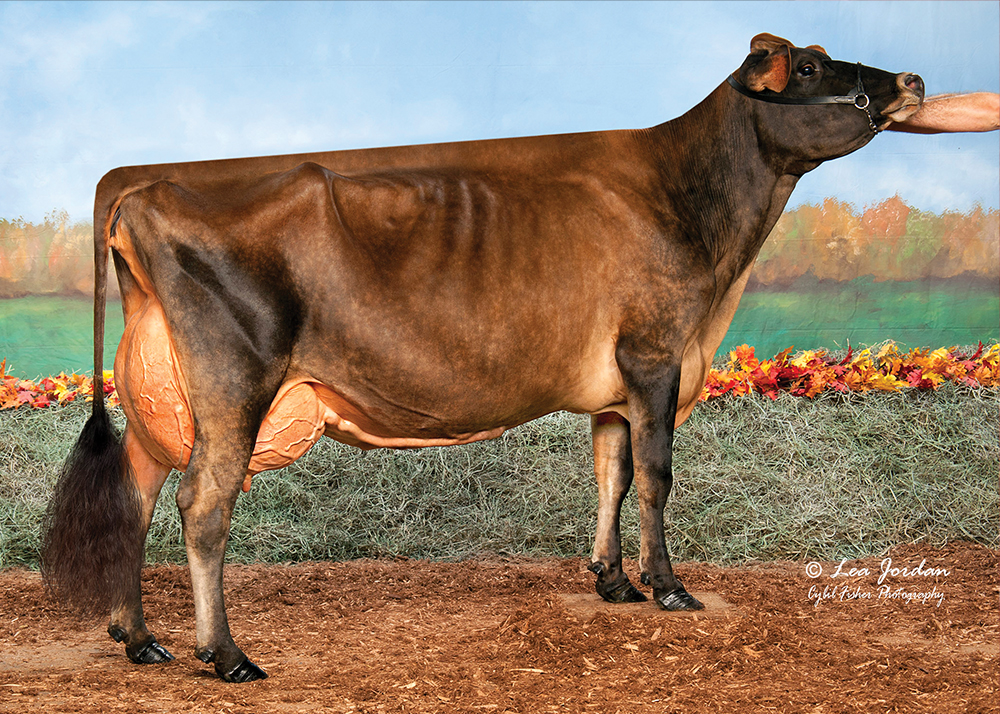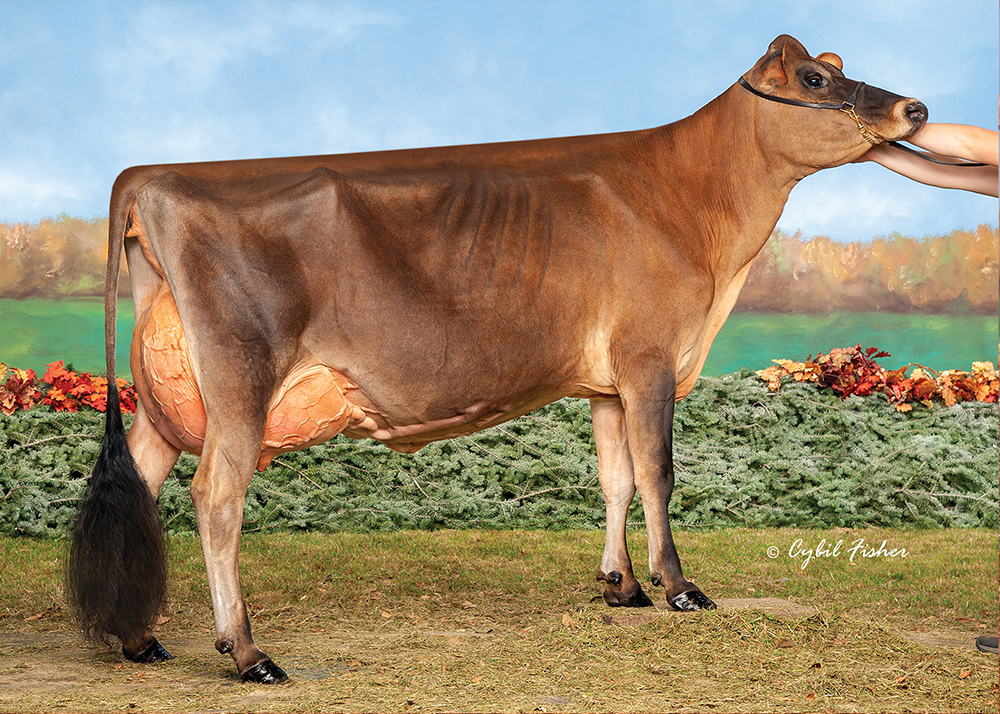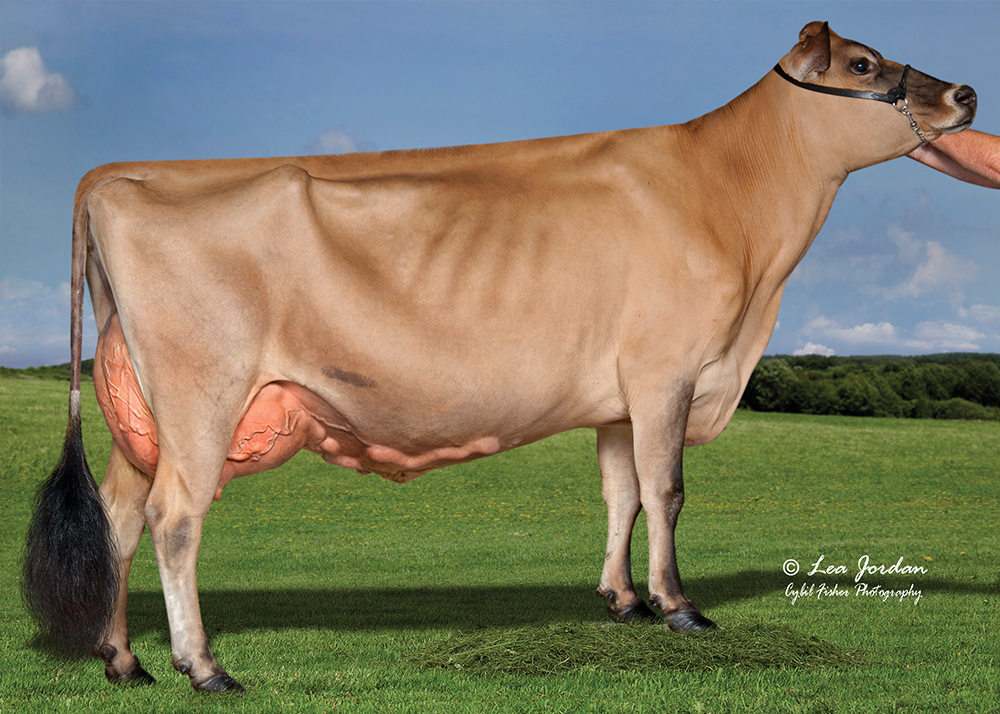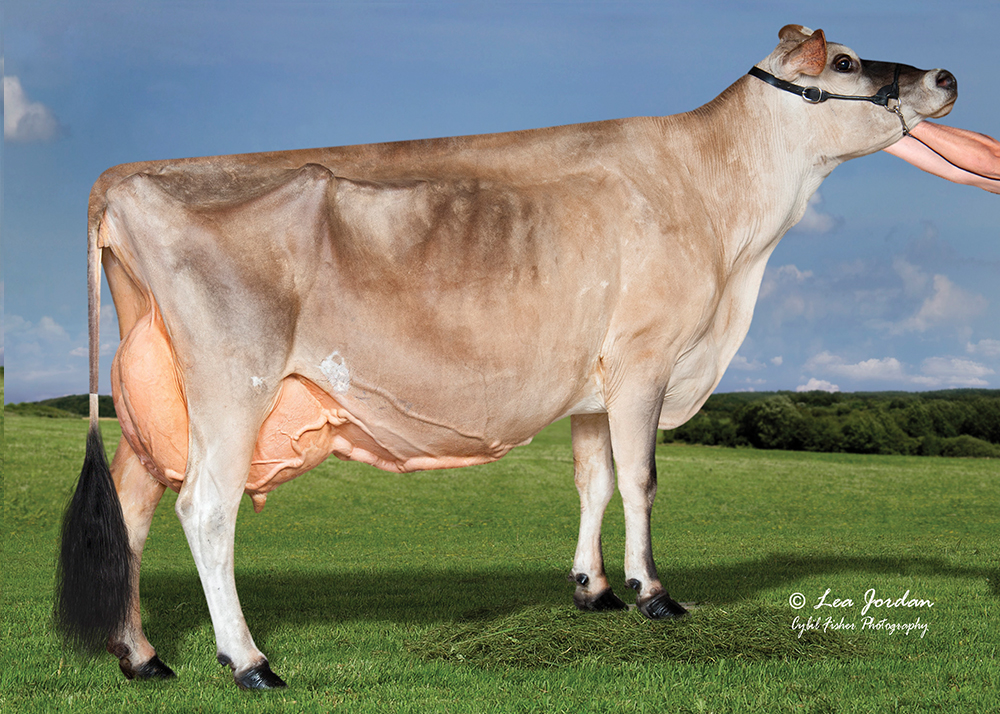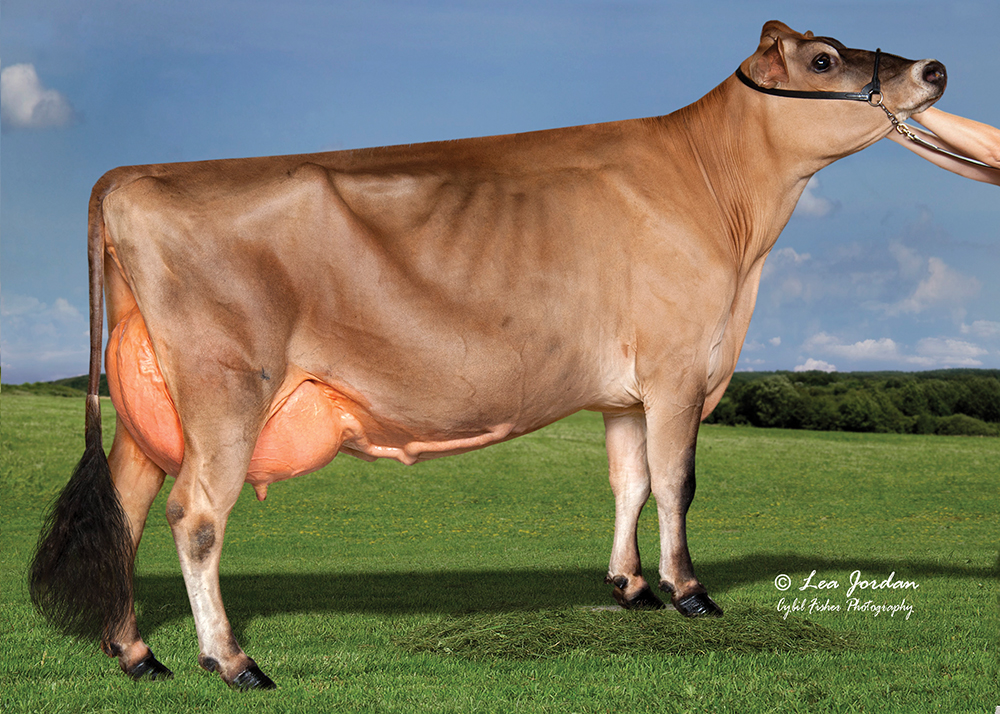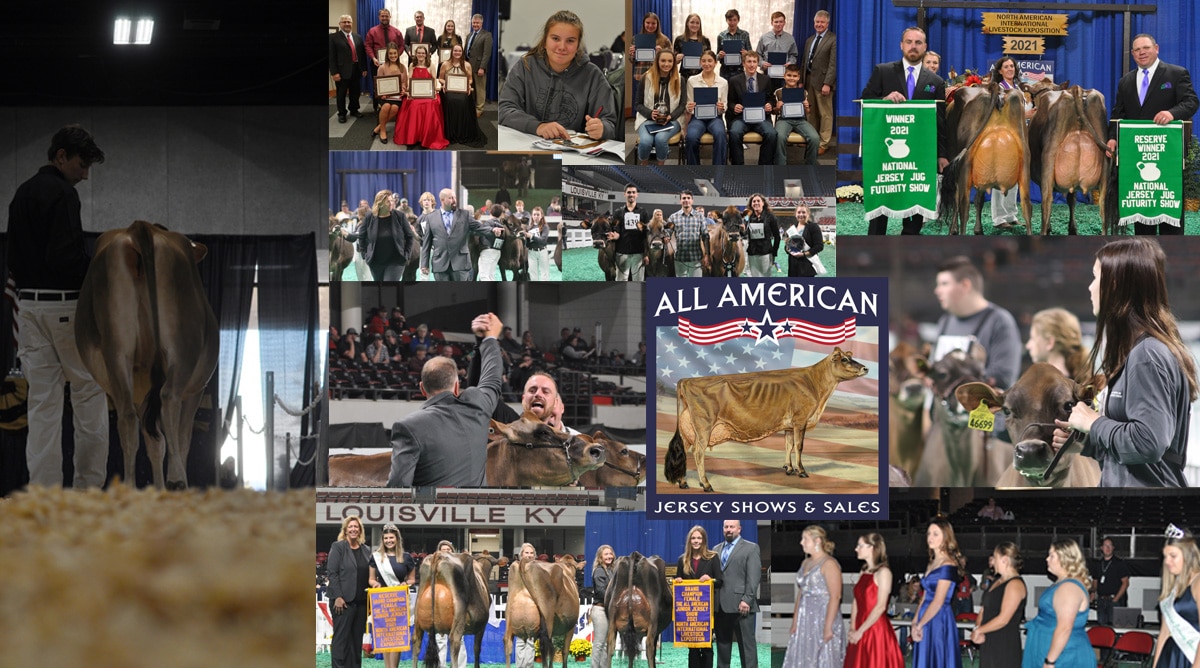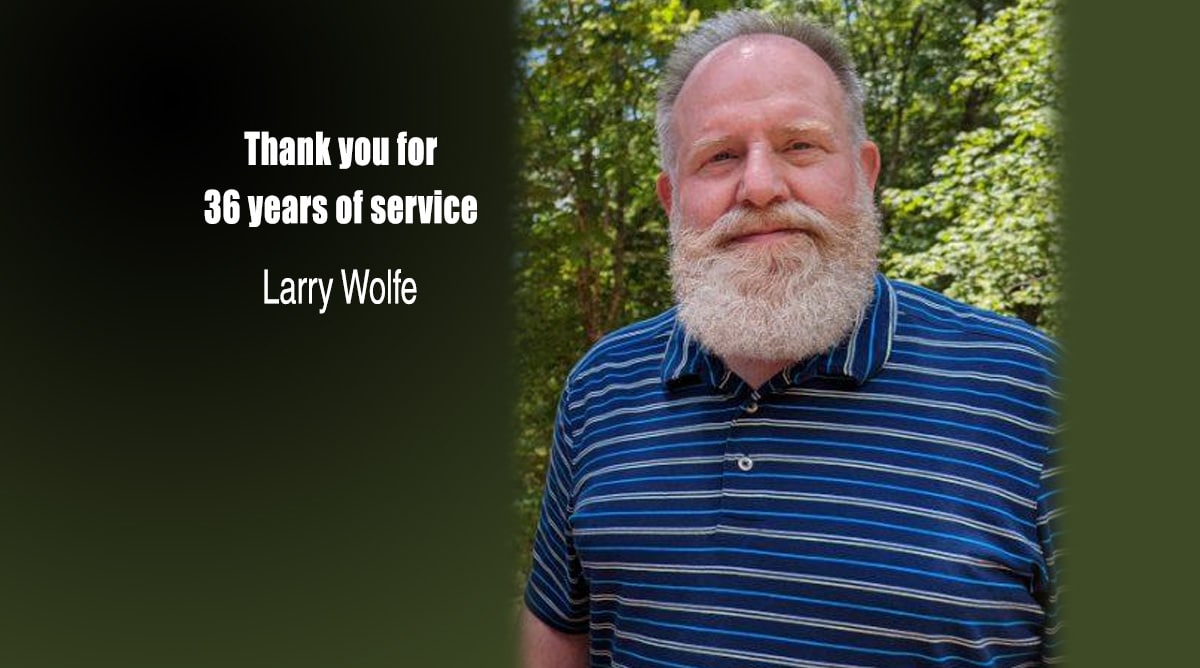Legacy Series: The Luchsinger Family of Silver Spring Farms, Syracuse, N.Y.
Welcome to the Legacy Series featuring Master Breeders of the American Jersey Cattle Association (AJCA). The Jersey Journal is excited to share stories with you about previous recipients of this award. We have asked each of them a series of questions covering topics from philosophy, farm history, breeding questions and even what they might be if they had not taken the route of Jersey breeder. We hope you enjoy getting to know these Jersey breeders and their advice and thoughts to the Jersey world today.
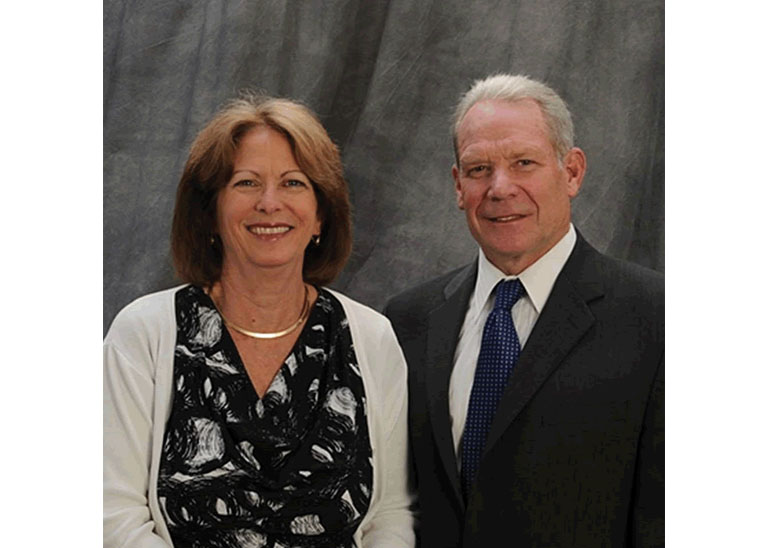
Historical Questions:
Describe your farm history and how Registered Jerseys became a part of your herd.
Our farm history began in 1914 when John and Katherina Luchsinger purchased our home farm just outside Syracuse, N.Y. They were young immigrants from Switzerland with a desire to acquire their own farm and herd of fine cattle.
John had some experience working with a high-profile Brown Swiss herd nearby so he had always set his sights on those type of cattle but his choice was to be Jerseys. He would later say Jerseys were easier to work with and were more predictable in transmitting desirable traits. He would gradually purchase the kind of cattle he wanted to milk and breed from to meet his dual ambition of high production and show winning appeal. By the year 1938 and again in 1939, he had achieved his goal of winning the prestigious Premier Breeder Award at the New York State Fair. In those days much like today he had to compete with the wealthy hobby herds of that era.
In 1950 John retired and his son Fred purchased the farm. Post WWII economy and technology presented new challenges for him. He increased the milking herd size to 90, bought more land and farm equipment but the priority of productive high-quality Jerseys remained the main focus of the Luchsinger family.
Fred’s son, Chuck and wife Sue, began their reign at Silver Spring Farms in 1986 and present day are the operators with son Charlie. Their daughter Ali is also involved in a part time role and daughter Jenny with her husband Josh Gordon of Indiana have their own small herd of Jerseys.
What did this award mean to you and your family?
Upon receiving the Master Breeder Award, we were honored to be alongside past winners, many of whom we had highly admired for so long. It made us think of years and years (100) of the hard work, dedication, with good times and tough times four generations of Luchsingers have endured and enjoyed. If only John and Katherina could have known what they worked so hard for would eventually be given this prestigious recognition.
Who were/are your mentors in the dairy industry?
Mentors, as for the generations before me I don’t know anyone specific but I’m sure they were breeders or herdsmen who were very successful in their field. For myself I have looked to my father Fred. As we ventured out to numerous shows, I got to meet many individuals older than I that were always willing to give advice, compliment our herd or just spend time talking to you. How lucky I was to know so many men with their unique personalities. Ones that come to mind are Max Gordon, Carl Bourne, Ray Chamberlain, Lew Porter and even Bob Lord. They and others have helped us shape our future in the show ring and in milk marketing.
Your Story:
In your opinion who have been the most influential bulls and cows to your breeding program?
Our herd is not one of today’s high genomic operations. Our philosophy has been to breed the kind of cow that produces well and one that appeals to the buyer’s eye. This has been true since the early days. If you are familiar with our breeding, you know that the bull Golden Faithful was the bull that transformed our herd into national prominence in the late 1970s. He was the son of a 2x National Champion and sired beautiful dairy-like frames with great udders. From there we sought out a variety of genetics to move forward in production and retain high type individuals. In their day we used mainstream bulls like Ledgend, Barber, Top Brass and Sambo. We have been influenced by Canadian bulls (Jade, Juno) Rapid Bay sires.
What do you consider your biggest success in the Registered Jersey business?
Our biggest success in the Jersey business has been to breed and develop the kind of Jerseys that we have sold to others and watch the success they enjoy with them. Most important are over the years the hundreds of calves and heifers sold to young boys and girls as 4H projects. So many of them were their first purchase, giving them an animal of their own to care for, train to lead and teach them responsibility and appreciation for animals. Another success, by having Jerseys, has been our survival in the dairy industry where others near and far, have not.
What one thing would you change that didn’t turn out the way you envisioned it?
Years ago we relied on our milk price to keep up to our expenses and farm investments, for various reasons it hasn’t. Our size operation is challenged.
Why did you choose to stay with (or start with Jerseys when the industry was going elsewhere?
We were born into the Jersey world. We feel fortunate for that and because of her numerous advantages we never have considered another breed.
Did you ever experience difficulties with financial institutions based on your choice of breed? If so, how did you handle?
We have never experienced any rejection from a lender because of our breed of cattle.
Your Philosophy and Take on the Future:
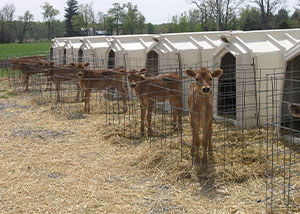 What traits do or did you focus on the most for your breeding program? How did this evolve and change over time? How do you think they will change in the next 20 years as technology continues to evolve?
What traits do or did you focus on the most for your breeding program? How did this evolve and change over time? How do you think they will change in the next 20 years as technology continues to evolve?
We concentrate on udder traits, especially rear udder height and width and dairy form. Also, the dam and cow family of the bulls we use must be extraordinary in both their production and appealing modern type. Popular sires from great dams and proven excellence in the daughters. Jersey genetics have improved dramatically over time, to have the best breed to the best of your choosing.
What piece of information on breeding do you know now that you wish you had known when you started out?
There is of course genomics which wasn’t available years ago. That level of predictability has accelerated production growth faster than anything. Also, type traits info has been expanded and modified to address functional and health traits which breeders rely on for more useful cows. We have used traits that define longevity and udder size, carriage, shape, teat placement and attachment.
What is the biggest change you have seen in the dairy industry over your years of involvement?
Changes we have seen in the dairy industry have been overwhelming. Larger herds, computerized record systems and modern facilities were all possible because of technology. With a single herd milking thousands of cows, the individual attention to each one is no longer possible.
In 20 years, what do you think the average size of a commercial farm will be? How will that affect breeding decisions?
Hard to tell just how big dairies will be in 20 years but there will surely be fewer small herds. Breeding decisions could be entirely made by computerized systems much like today. I think they will focus on mainly components, udder traits and mobility.
What do you think has been the greatest challenge the Jersey breed has, or will encounter?
Finding enough Jerseys to fill the barns of these mega dairies.
What do you see as the future of the Jersey cow?
Jerseys are and have been the most efficient breed for butterfat and protein and that will always be true. In her future she may become America’s dominant breed. I see dairymen choosing Jerseys over their present breed for a number of reasons.
Promotion and Marketing:
As you worked with cow families in your herd, what avenues did you find were the best ways to get the word out about potential bull mothers, young bulls for sales, or special heifers in the herd?
The Jersey Journal has been the main avenue of promotion since the beginning and today with its colorful and informative format remains the leader in Jersey advertising and news. Social media however with its instant delivery of information has become a popular source of herd and sale promotion used by many.
Your dairy has had a strong presence in the Jersey Journal through the years- through advertising and/or award recognitions. How do you feel this has benefited the marketability of your genetics?
Without the Jersey Journal we would never have had the success in marketing our herd and sale consignments. Information, photos, and pedigrees as presented in the Journal have reached prospective buyers and casual readers alike.
What words of wisdom would you give to young breeders just starting out?
Words of wisdom to young breeders…. Set goals as to which type of Jerseys you want to own, be that high genomic modern production or traditional breeder herd with show cattle and sale consignments. Be aggressive in choosing sires, select the best but don’t be afraid to be a little diverse. Be prepared for change. It’s going to happen, and you must adapt to it because the future is impossible to predict. Listen to people who have succeeded in what kind of herd you want to have. Get to know lots of Jersey breeders, go to Jersey events. The camaraderie over the years will be very rewarding.
Your Dairy’s Future:
What do you do if there is another generation coming onto the farm to pass on your breeding mentality/ legacy?
Be sure the next generation knows your farm history so they can learn from our successes and mistakes. Pay attention to finances. Tell them it’s your time now, help them whenever you can and enjoy the transition.
Time for some fun!
If you could bring any cow back from the dead and breed her one more time, guarantee heifer calf. What would you breed her to?
Joel
What is one of your favorite cows (or cow families) that you have not bred?
Sunset Canyon Ren Belle III bred by Eric Silva … 2003 All American Senior Two-year-old.
If you were not a dairy farmer, what would you do career wise?
Veterinarian
